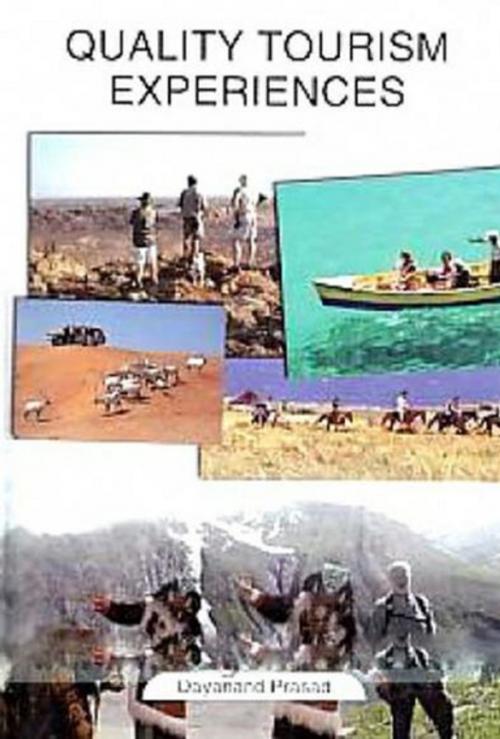Quality Tourism Experiences
Business & Finance, Industries & Professions, Hospitality, Tourism & Travel| Author: | Dayanand Prasad | ISBN: | 9789388034258 |
| Publisher: | Anmol Publications PVT. LTD. | Publication: | June 30, 2014 |
| Imprint: | Anmol Publications PVT. LTD. | Language: | English |
| Author: | Dayanand Prasad |
| ISBN: | 9789388034258 |
| Publisher: | Anmol Publications PVT. LTD. |
| Publication: | June 30, 2014 |
| Imprint: | Anmol Publications PVT. LTD. |
| Language: | English |
Quality and sustainability in tourism are inherently linked. Thus, UNWTO aims at applying a broader concept of quality: while the conventional application of quality management in tourism establishments and services remains the basis, the quality of the natural and cultural environment of tourist destinations adds onto, and these together represent the overall quality of the tourist experience. Quality is the “face” of sustainability. In other words, while quality is perceived immediately by costumers through the tourist activity, sustainability means the policy framework and management processes behind, ensuring a high quality offer and the tourist experience remains in the long term. Tourism standards, norms and related regulations are strategic policy instruments for the tourism sector. They can ensure the integrity of the national tourism sector, guarantee the sustainability of tourism practices and set strategic priorities. Quality tourism and result in a high level of tourist satisfaction and, at the same time, protect the environment and culture of a destination. However, it is important to understand that the implementation of quality and sustainability standards and norms is a continuing process which needs the involvement and cooperation of all stakeholders along the tourism supply chain. The present book is an effort to look at the standards of quality in tourism products, services and management. Useful for the industry leaders to identify the latest trend in quality management and tourist satisfaction.
Quality and sustainability in tourism are inherently linked. Thus, UNWTO aims at applying a broader concept of quality: while the conventional application of quality management in tourism establishments and services remains the basis, the quality of the natural and cultural environment of tourist destinations adds onto, and these together represent the overall quality of the tourist experience. Quality is the “face” of sustainability. In other words, while quality is perceived immediately by costumers through the tourist activity, sustainability means the policy framework and management processes behind, ensuring a high quality offer and the tourist experience remains in the long term. Tourism standards, norms and related regulations are strategic policy instruments for the tourism sector. They can ensure the integrity of the national tourism sector, guarantee the sustainability of tourism practices and set strategic priorities. Quality tourism and result in a high level of tourist satisfaction and, at the same time, protect the environment and culture of a destination. However, it is important to understand that the implementation of quality and sustainability standards and norms is a continuing process which needs the involvement and cooperation of all stakeholders along the tourism supply chain. The present book is an effort to look at the standards of quality in tourism products, services and management. Useful for the industry leaders to identify the latest trend in quality management and tourist satisfaction.















